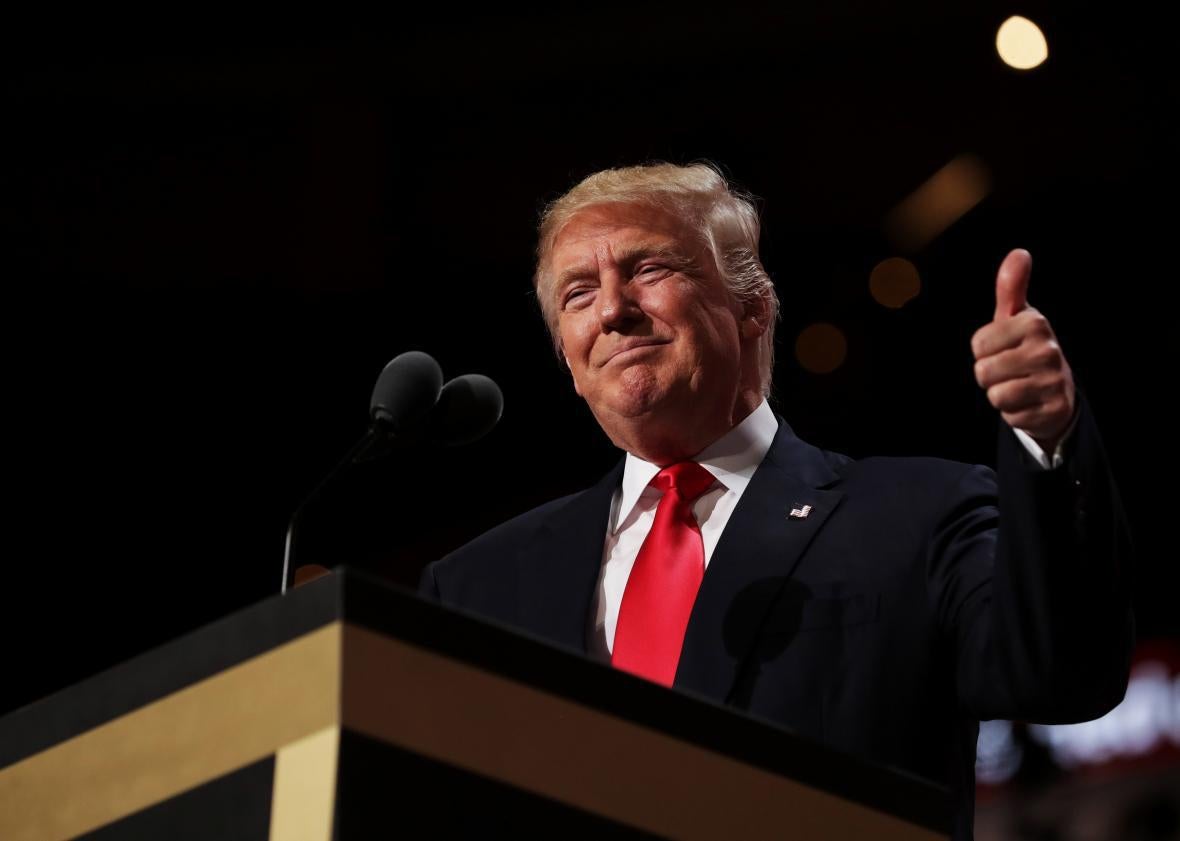At a press conference in Miami on Wednesday, Donald Trump said something outrageous. (Can you believe it?) “Russia, if you’re listening, I hope you’re able to find the 30,000 emails that are missing,” he said in reference to the emails deleted by Hillary Clinton as secretary of state. “I think you will probably be rewarded mightily by our press.”
This was, at minimum, a deeply disconcerting comment from a man who will very soon have access to American intelligence. For many watching, it was more than just a troubling aside. It was treason.
But should we really call this treason? Precedent suggests saying you would like something bad to happen to the American government does not meet the required legal standard. Even if you make that suggestion in a press conference, even if it involves a public invitation to a foreign power, and even if the person doing the inviting is Donald Trump.
“Legally speaking, there’s no actual item here,” says Mark Zaid, an attorney specializing in national security law. “It would have to be more than just words. It would be taking action against the United States in specific, actual situations.”
The parameters of treason are explicitly outlined in the Constitution. It is defined clearly and narrowly. “Treason against the United States, shall consist only in levying War against them, or in adhering to their enemies, giving them aid and comfort,” Article III, Section 3 states. “No person shall be convicted of treason unless on the testimony of two witnesses to the same overt act, or on confession in open court.”
The history of formal and informal efforts to supplement these two sentences is long, convoluted, and shameful. Despite that history, the specific section of the U.S. legal code dealing with treason (Title 18, Part I, Chapter 115, § 2381) has changed little over the past century or so. It reads:
Whoever, owing allegiance to the United States, levies war against them or adheres to their enemies, giving them aid and comfort within the United States or elsewhere, is guilty of treason and shall suffer death, or shall be imprisoned not less than five years and fined under this title but not less than $10,000; and shall be incapable of holding any office under the United States.
In the more than 220 years since the adoption of the Constitution, fewer than 30 people have been tried for treason. One of the first to be tried was former Vice President Aaron Burr, who conspired to take over vast portions of American territory to form his own personal empire. Burr was acquitted. To be charged with treason, Supreme Court Chief Justice John Marshall wrote, “war must be actually levied against the United States. However flagitious may be the crime of conspiracy to subvert by force the government of our country, such conspiracy is not treason.” If Donald Trump had flown to Moscow to sit down with Vladimir Putin and propose an invasion of the Western seaboard for the purpose of turning Oregon into a luxury golf resort, he could not, legally, be charged with treason by this standard. For his comment and his tweet, he is guilty of nothing more than being Donald Trump, which is sin enough.
The last convictions for treason in the United States happened during World War II and in the war’s immediate aftermath. In some high-profile cases, like that of Julius and Ethel Rosenberg, spies were prosecuted for separate but related offenses like espionage. John Walker Lindh, an American citizen captured while fighting with the Taliban in Afghanistan in 2001, was convicted on 10 counts. None of them were treason.
Zaid says this is a case of a word having a very specific meaning in a legal context and a different, looser meaning in conversation. Zaid’s final word: “People don’t know what they’re talking about.”
